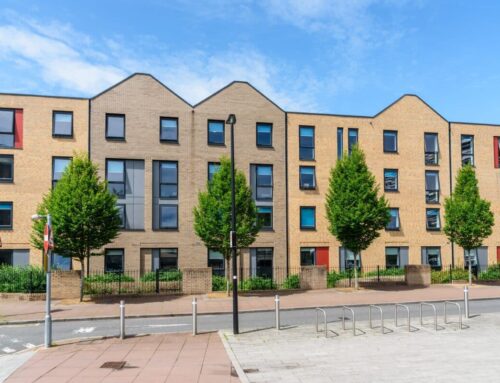Block in a Box explains how anyone involved in the property management industry will be fully aware of the importance of budgeting, financial planning, and cash flow when it comes to running a building. Largely, this means relying on the timely payment of service charges by leaseholders.
Residents’ Management Companies (RMC) Directors dread their leaseholders falling into service charge arrears and having to deal with all that that entails- read on for some helpful guidance around what your procedures should be and who to turn to if all else fails.
The Effect of Arrears on Property Management
The effect of service charge arrears becoming an issue in your block will be felt almost immediately, with reduced levels of general maintenance and service being the first to be noticed. If any large-scale maintenance is on the horizon, start dates may have to be pushed back and plans may even have to be put on hold indefinitely until the situation is rectified
The knock-on effect will be unhappy residents, a potential drop in property value and a decrease in any remaining equity available to leaseholders.
The Service Charge Demand Process
It’s vital that Directors have a clearly defined process to ensure the prompt demand and collection of service charges. Residents who pay on time will, quite rightly, expect a high level of maintenance and service and can make things very difficult for property managers who do not live up to expectations.
It’s therefore in the Director’s best interest to exercise a zero-tolerance approach to arrears, but that means ensuring that demands are compliant in the first place and a simple, straightforward procedure is in place:
- Demands should be supplied in adherence to current standards, which means including a summary of the leaseholder’s rights and obligations as well as displaying the landlord’s name and address. If these standards aren’t met, the leaseholder is under no obligation to pay.
- If payment is not received on time, a polite reminder should be sent to the leaseholder ASAP.
- In the continued absence of payment, the leaseholder should be warned of the possibility of legal proceedings being commenced and a solicitor instructed.
Late Payment Administration Charges and Interest
Importantly, during the process of serving service charge demands and reminder letters, RMCs and managing agents should ensure that any slow payers are penalised with late payment administration charges when appropriate. These charges will go some way to recovering monies for the additional time spent chasing payment.
The legislation merely states that such charges should be ‘reasonable’ but you can look to your lease for guidance. Most leases allow for interest to be charged at a rate of 4% above base rate.
Instructing Solicitors; Recovering the Legal Costs from the Leaseholder
Most modern leases also allow for the recovery of solicitors’ costs from a leaseholder if they’re instructed to recover any arrears. With this in mind, RMC directors and managing agents can expect that all legal fees for undisputed cases are paid by the leaseholder – not the RMC. This makes sense as it ensures the legal costs are not absorbed into any subsequent service charge demand, therefore protecting the other leaseholders.
This means that that outsourcing arrears recovery to a solicitor may be preferable as a) they have the expertise, b) they have the time to dedicate to the matter and c) the costs are recoverable from the leaseholder at fault. With this in mind, RMC directors and managing agents are able to adopt a zero tolerance approach to the collection of arrears, safe in the knowledge that any disputes can be handled by a third party. At Block in a Box, we highly recommend SLC Solicitors for your service charge recovery needs.
In the Event of a Service Charge Being Challenged…
It’s important to note that the above advice is applicable to late payers and not leaseholders who actually take issue with a demand.
Leaseholders have the right to challenge any demand that they believe is unreasonable or non-compliant with the lease. If a complaint is received, the leaseholder is entitled to a written summary of costs incurred in the last accounting year (April to April) or, if there’s not one, the last 12 months leading to the date of their request. This must be provided within 6 months of the end of the last accounting period, or within one month of the request (whichever is later).
Within 6 months of this being provided, the leaseholder can then go on to request that the accounts and receipts (and any other supporting documents) be sent to them for inspection.
You must comply with the above time frames to avoid landing yourself in hot water and, in most instances, the above is enough to satisfy the needs of the leaseholder so that payment can be made. If not, the matter may go to First-Tier Tribunal but, as long as you’ve kept things above board, this should swiftly result in payment being demanded of the leaseholder.
Block in a Box not only provides information on service charges. We can also help with utilities, repairs, insurance, health and safety, and just about any other issue a flat owner or manager might face. To learn more about leasehold management companies or freehold management companies, contact our friendly and professional team today on 0333 0154 145.







Leave A Comment